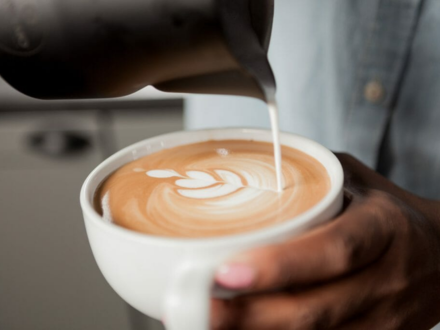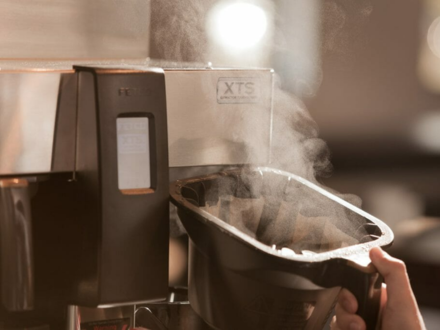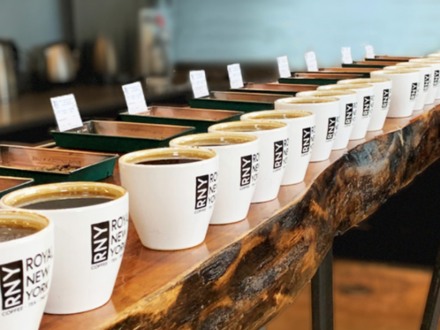June 20, 2023
The Q Grader Coffee Course is BACK at the RNY Lab!
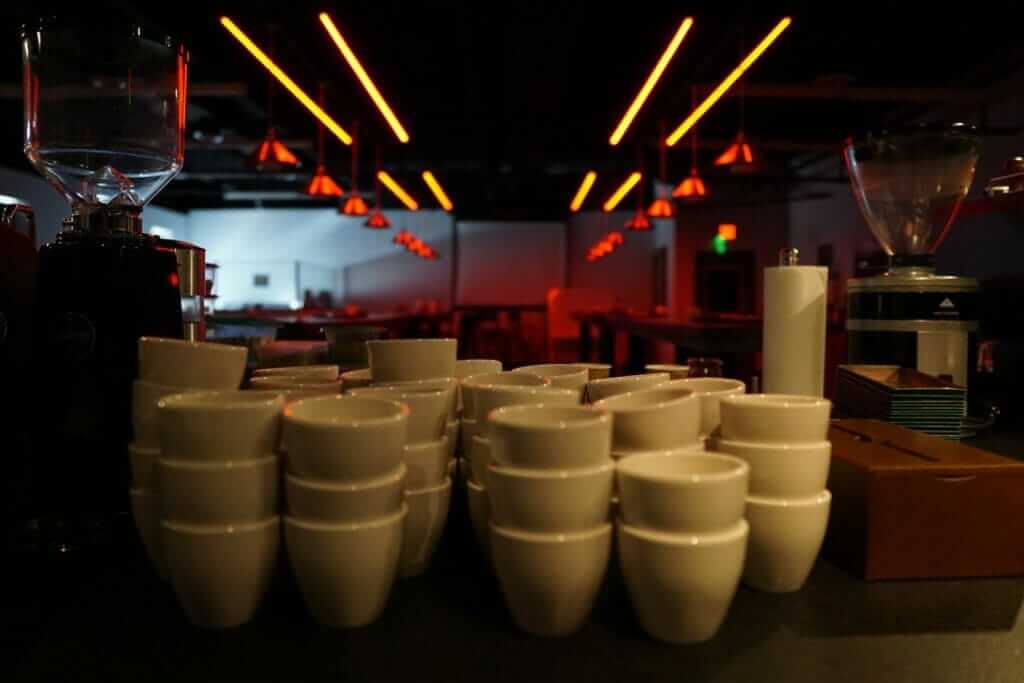
Are you looking to become a Q Grader? The Q Grader Coffee Course is back at the Royal NY Lab! If you’re searching for more information before signing up, keep reading. Here we’re breaking down the basics of being a Q Grader and what the exam entails. Two of our in house Q Grader coffee traders are also sharing their experience with the exam and becoming a Q Grader.
Ready to sign up? Use the links below!
Q GRADER COURSE & EXAM
What is the Q Coffee System?
Simply put, the Q Coffee System “identifies quality coffees and brings them to market through a credible and verifiable system.”* It is a way to standardize how coffee professionals evaluate and grade coffee.
The SCA defines specialty arabica coffee as “coffee that is free of primary defects or unclean odors and scores 80 or above on the SCA cupping form.” But what if one person scores a coffee a 78 while another scores a coffee an 83? Who is right? Why does it matter? Can’t we just average the scores together and call it a day?
No, we cannot. There are many reasons scoring a coffee correctly and accurately matters.
The Importance of the Q Coffee System
The Q Grading system matters because that score reflects the price that a producer can receive for their green coffee. A coffee that scores a 78 vs an 83 represents a big difference in perceived value and therefore, its price.
It also matters because these scores tell us something about the quality of the coffee and what to expect. Therefore, they need to be standardized to create a common language that is used throughout the supply chain. This is what the Q program aims to do.
Coffees can taste differently based on where it is from and processing methods. Coffees from Sumatra will most likely not have the same acidity as coffee from Kenya. It’s just not what you expect from a Sumatra coffee. Therefore, you shouldn’t fault a great coffee from Sumatra because it didn’t have the same acidity as that Kenya coffee you had once. Part of being calibrated as a Q grader is being familiar with coffee’s regional attributes and scoring the coffees based on those attributes alone. Not based on what coffees from other regions taste like, and definitely not based on what you like to taste in coffees.
Q graders receive training to give attributes such as acidity, body, balance, sweetness, uniformity and aftertaste a quantifiable number score. They then add these numbers together to give the coffee its overall score. Q graders must pass a rigorous test in order to prove calibration and receive a Q grader license. In theory, Q graders from all over the world could cup the same coffee and all score it within a +/- 0.5 difference.
What is the Q Grader Coffee Exam?
The Q Exam is legendary in the coffee industry. The Q calibration course lasts 6 days with a mix of calibrating as a group and then testing. Students must pass all 20 individual tests in order to receive their Q Grader license. Some tests include:
Cupping Skills
Students must perform 4 cuppings (Washed Milds, African, Asian, Naturals) and use the SCA cupping form to grade 6 coffees in each cupping. Students must use the form correctly and be calibrated to the instructor and the group scores to receive a passing grade.
Triangulations:

There will be 6 sets of 3 cups. In these 3 cups, 2 of the coffees are the same and one is different. The triangulations mimic the cuppings: 4 total triangulations representing Washed Milds, African, Asian, and Natural coffees. This test is given in red lighting, so students can not see differences in color between the cups. That, along with the coffees already being similar based on region, make these tests pretty difficult.
Roast Identification:
Students have to identify whether the sample is: too dark, baked, underdeveloped, or roasted to protocol, without tasting or calibrating to a control sample beforehand.
Organic Acids Matching Pairs:
Correctly identifying 4 organic acids commonly found in coffee. The acids used could be citric, malic, acetic, phosphoric, quinic, or lactic. Students face 6 sets of 4 cups, two of which have been spiked. They need to correctly identify which cups have been spiked and name the acid. Some of the acids will appear twice.
Sensory Skills:
This tests students’ ability to identify basic tastes. Students taste different solutions starting off ‘easy’ by identifying varying intensity levels of salt, sour, and sweet, but growing harder, as solutions become mixes of sugar, sour, and sweet at different intensity levels. For example, a solution could be one part sweet, two parts sour. Or two parts sweet, one part salt. Palate fatigue mixed with stress makes this test difficult for most students.
Students also need to pass a general knowledge exam, green and roasted coffee grading, and 4 olfactory tests using the Le Nez du Cafe kit.
Why such an intense test?
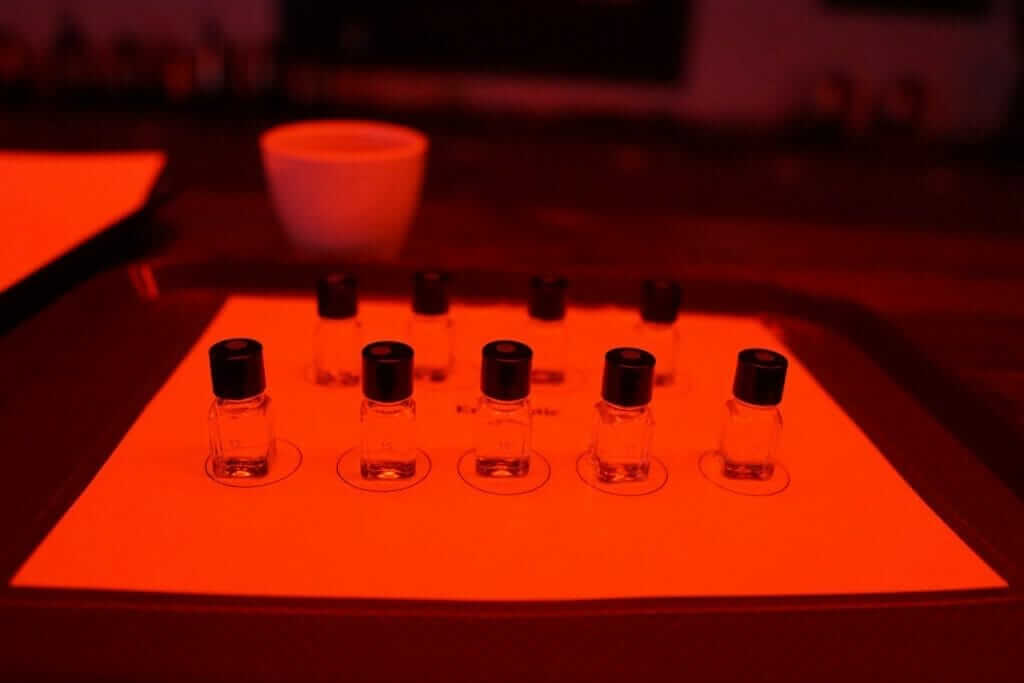
Like we mentioned above, Q graders are giving a coffee a score that will reflect how much a producer can sell their coffee for. This is not something to be taken lightly. Put yourself in a producer’s shoes, having a third party grade your product and determining your income. Grading needs to be objective, justified, and accurate.
Two coffee traders at Royal NY have taken the Q Exam. We decided to talk about why taking the Q was important to us and some tips that helped us pass for those who are thinking of putting their palates to the ultimate test!
Advice from our Q Grader Coffee Traders
Joe Borg, Senior Trader

22 tests in 3 days! Who’s ready for a palate roller coaster ride? Deciding to take the Q the week before the exam isn’t exactly the best scenario to put yourself in but, why not right? In all honesty, don’t do that! I did, but I regretted it after as I could’ve tested myself on a few of the exams to prepare a bit better. All the information is out there and you have 2 people at Royal to talk to regarding what to expect and to discuss the exam in more detail.
I highly suggest any coffee person who’s interested in heightening their knowledge on coffee, cupping and, of course, challenging yourself to sign up! If you’re a coffee buyer, cupper, business owner, or just curious then the Q is for U. The Q course will allow you to grade and score coffees as specialty grade or not specialty grade. These grades and notes are communicated throughout the supply chain from the roaster, importer, exporter and producer. Everyone’s goal should be to increase the amount of specialty coffee being produced throughout the world, so being able to accurately grade and cup coffees will hopefully allow a producer to understand why their coffee may not be specialty and how and what they could do to increase their score to grant them a higher premium for their coffee in the future.
Mike Ward, Trader

Taking the Q was a transformative experience for me and I really can’t suggest it highly enough to anyone that wants to take their coffee game to the next level. While the test is really intense, the people that you take it with make you feel like you’re in a small tight knit family and the support that is given from your peers is unmatched. Preparing for the test is key and cupping a lot of coffee really helps to prepare your palate for the multiple exams. Overall, it was a fun and challenging time that I would do again in a heartbeat.
Ready to sign up? Use the links below, good luck!
Q GRADER COURSE & EXAM
* referenced from the Coffee Quality Institute
Left to Checkout


